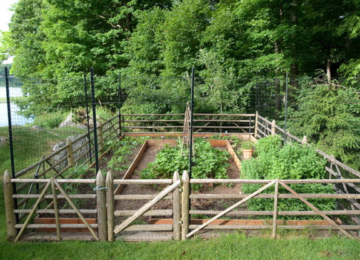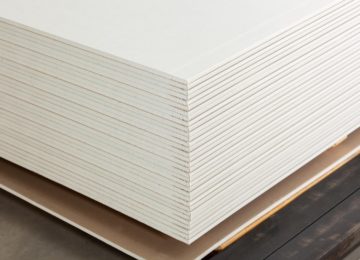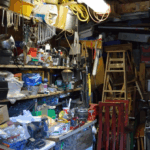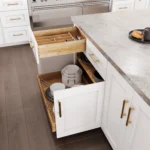The transformation of home gardens into stylish outdoor extensions reflects a significant shift in modern home design. Where once gardens were purely functional or ornamental, they now embody the style and innovation that characterize contemporary living spaces. This evolution in garden aesthetics is largely due to the advent of innovative garden accessories. These elements are not merely functional; they are designed to complement and enhance the overall architecture and design of modern homes. From advanced, eco-friendly tools to elegantly designed décor, these accessories do more than just beautify – they redefine the functionality and visual appeal of outdoor spaces.
The Renaissance of Garden Design with Modern Accessories
Contemporary garden accessories are at the forefront of this transformation. These include:
- Planters: Modern planters are not just containers for plants; they are statement pieces. Made from a variety of materials like high-grade plastics, metals, and sustainable woods, they come in numerous designs, from sleek, minimalistic styles to more ornate, artistic ones. These planters cater to a range of gardening needs, from small herb gardens to larger ornamental plants, while adding a stylistic touch to the garden.
- Lighting: The right lighting can dramatically change the ambiance of a garden. Solar-powered lights offer an eco-friendly lighting solution, charging during the day and illuminating paths and features at night. LED string lights can create a warm, inviting atmosphere, perfect for evenings spent outdoors. For those who enjoy high-tech solutions, programmable lighting systems can be controlled via smartphone, allowing homeowners to adjust settings for different occasions or times of day.
- Furniture: Modern garden furniture has evolved beyond simple functionality to become a fusion of comfort and style. Materials like rattan, teak, and powder-coated metals are popular for their durability and aesthetic appeal. Designs range from classic to contemporary, ensuring there’s something to suit every taste and garden theme.

Integrating Technology for a Smarter Gardening Experience
Technology has significantly influenced modern gardening:
- Automated Irrigation Systems: These systems take the guesswork out of watering. Equipped with timers and sometimes sensors, they deliver the right amount of water at the right time, ensuring efficient use of resources and healthier plants.
- Programmable Lighting: Smart lighting systems can transform a garden into a dynamic space. These systems allow homeowners to control the intensity and color of the lights, creating different moods for different occasions.
- Environmental Sensors: Tools like soil moisture sensors and weather stations help gardeners monitor and respond to the needs of their plants more accurately. This technology helps in making informed decisions about watering, fertilizing, and plant care.
Embracing Sustainability – Eco-Friendly Options in Garden Accessories
Eco-friendly gardening is more than a trend; it’s a commitment to environmental stewardship. Sustainable garden accessories include:
- Biodegradable Planters: Made from materials like bamboo fiber, rice husks, or natural resin, these planters decompose over time, reducing waste.
- Water-Conserving Tools: Drip irrigation systems and water barrels for rainwater harvesting are practical solutions that help conserve water.
- Recycled Materials: Many garden accessories, from furniture to decorative items, are now made from recycled or upcycled materials, adding both style and sustainability to garden designs.
Artistic Expressions – Enhancing Gardens with Decorative Elements
Decorative elements add personality and flair to gardens:
- Sculptures: From abstract pieces to more traditional statues, sculptures serve as focal points in garden design, reflecting the homeowner’s taste and style.
- Water Features: Fountains, ponds, and waterfalls add a sense of tranquility to the garden, creating a soothing soundscape.
- Ornamental Stones: These can be used to create pathways, borders, or decorative accents, adding texture and color to the garden layout.
The right accessories in your garden can change an ordinary outdoor space into a stylish, practical area of your home. When homeowners choose items that balance practicality, design, and sustainability, they create gardens that are attractive, enjoyable, and environmentally friendly. Check out Huxo Home’s garden collection for unique garden accessories that let you showcase your personal style while keeping up with current garden design trends, making sure your garden is an integral, cherished part of your home.
Frequently Asked Questions
What Are the Best Plants for an Eco-Friendly Garden?
The best plants for an eco-friendly garden are native species, as they require less water and maintenance. They are well-adapted to local climates and support local wildlife. Examples include wildflowers, native grasses, and regional shrubs. Additionally, consider drought-tolerant plants if you live in a drier climate.
How Can I Make My Home Energy Efficient?
Making your home energy efficient can be achieved by upgrading to energy-efficient appliances, using LED lighting, improving home insulation, and installing programmable thermostats. Additionally, consider investing in renewable energy sources like solar panels for long-term efficiency.
What Are Natural Alternatives to Chemical Garden Pesticides?
Natural alternatives to chemical garden pesticides include neem oil, diatomaceous earth, and homemade sprays made from garlic, chili, or soap. Encouraging beneficial insects like ladybugs and lacewings can also help manage pests naturally.
How Can I Reduce Plastic Waste in My Kitchen?
To reduce plastic waste in the kitchen, switch to reusable containers, avoid single-use plastics, and opt for products with minimal packaging. Also, consider using beeswax wraps instead of plastic cling film and bringing reusable bags when shopping.
What Are Sustainable Materials for Home Furniture?
Sustainable materials for home furniture include bamboo, reclaimed wood, and FSC-certified timber. These materials are renewable and have a lower environmental impact. Also, look for furniture made from recycled materials or those with eco-friendly certifications.











